[Portrait] Cyrielle Garson, Senior Lecturer in English and Theatre Studies (UPR ICTT)
What is your research about?
My current research is part of thestudy of the digital transition of the performing arts industryThis phenomenon has accelerated sharply since the COVID-19 pandemic. I am particularly interested in innovative stage practices that use XR (extended reality), and more specifically VR (virtual reality), to reinvent forms of creation and reception. These new artistic experiences (which sometimes incorporate artificial intelligence) are profoundly redefining the theoretical frameworks of theatre and English-language studies. They have also led me to engage with related fields such as digital humanities, and even to co-found an emerging discipline: theatrical IT, at the crossroads of IT and the performing arts.
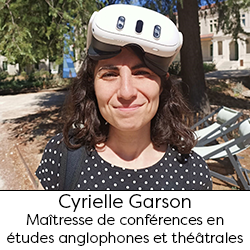
What are your current scientific activities?
Since my first book Beyond Documentary Realism: Aesthetic Transgressions in British Verbatim Theatre on British documentary theatre (2021, De Gruyter), I publish articles in French and English on my new research theme for various communities. Here are a few examples of my recent contributions:
- On line on HAL (the national platform for the dissemination of scientific research), I have just co-edited in bilingual format (French and English) with my colleague Rémi Ronfard (Inria) the articles from the Journées de l'informatique théâtrale held at Avignon University on 9-11 October 2024.
- For the general public and performing arts professionals, I have just published an article on theatre in the "metaverse" for the magazine Theatre/Public
- For the international scholarly community interested in contemporary English-language theatre, I have just published an interview with American artists Ferryman Collective for the Journal of Contemporary Drama in English : https://www.degruyterbrill.com/journal/key/jcde/13/1/html
Finally, this year I'm delighted to have been chosen to represent the Vaucluse region as an ambassador for the Fête de la Science. Thanks to the Villa Créative D4 Associés prize won last May, this will be an opportunity to show the general public at the fête de la science the potential of telepresence for theatre, thanks to a technology (station scenic) developed by the SAT (Société des arts technologiques) in Montreal. In the auditorium of the Villa Créative, we will be inaugurating the first theatrical telepresence experiment between Avignon and Montreal with our Canadian partners, and locally, the Conservatoire du Grand Avignon and the Chartreuse de Villeneuve.
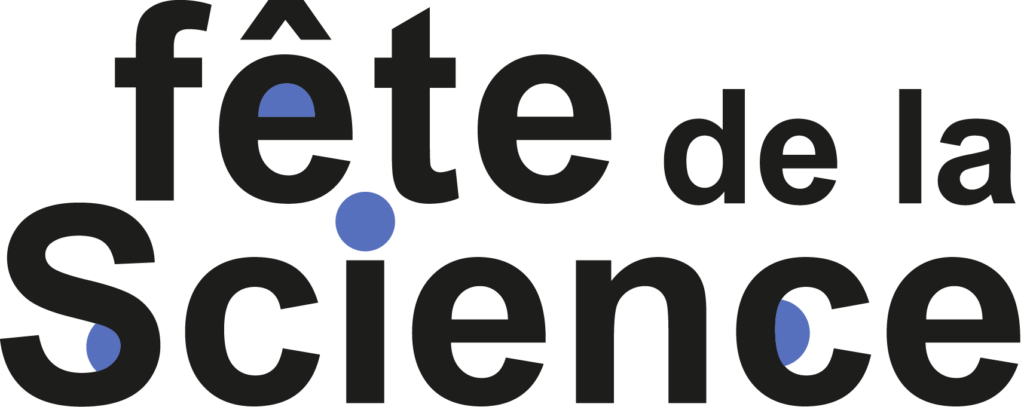
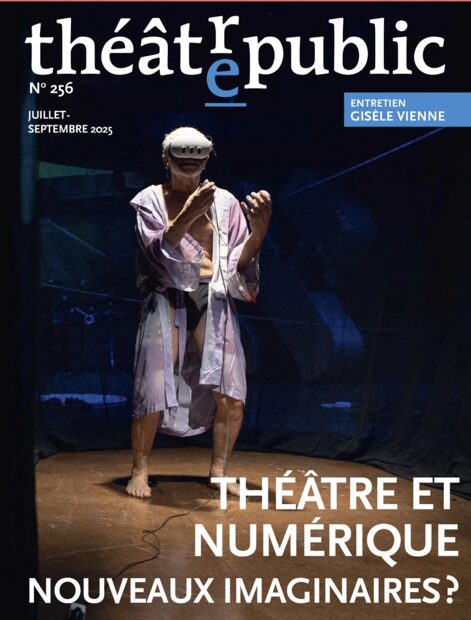
Why did you choose to work in academic research?
I've always loved passing on knowledge, but after my degree I didn't yet know how to make an original contribution to knowledge. The world of university research allows me to be at the cutting edge of knowledge in my field at an international level, and so to pass on new or emerging knowledge to our communities of learners. Teaching these audiences also allows me to test different ways of transmitting knowledge, particularly through support for educational innovation.
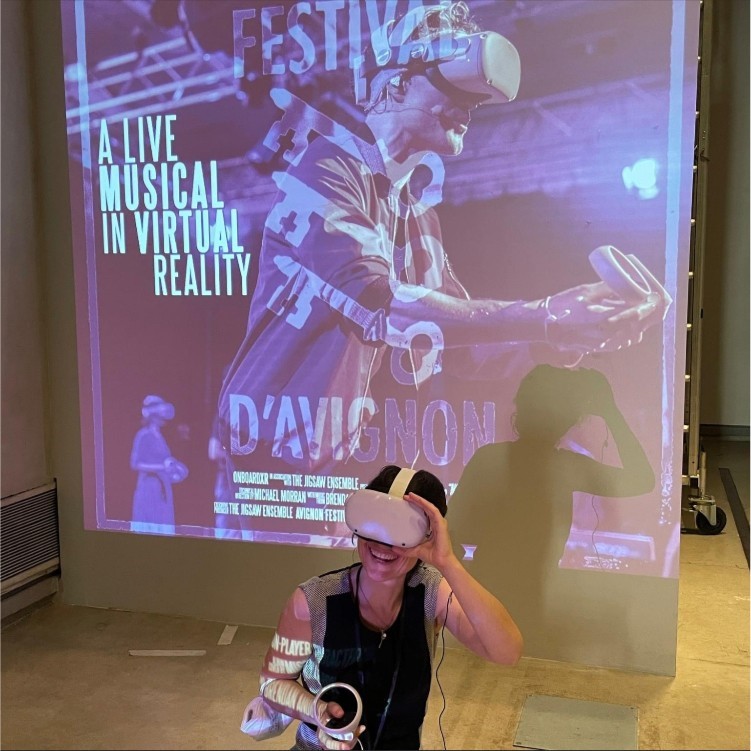
What advice would you give to students who want to do research?
Research skills are invaluable and have many applications outside the academic world. In an increasingly digital world, the ability to concentrate and critically select information is a real added value. Today, however, I have more reservations about choosing an academic career in the humanities and social sciences, as positions are becoming increasingly scarce. While we wait for a positive change in recruitment capacity in our public institutions, we must hope that French civil society recognises the high quality of PhDs in order to facilitate their professional integration.
What object or image from your business best illustrates you?
From theory to practice: during a workshop with the American artists Ferryman Collective at the international conference of the CDE (The German Society for Contemporary Drama in English) in Innsbruck, Austria in 2024, I introduced the participants to theatre in virtual reality. This is what's known as 'onboarding', the pre-show moment when I help the participants to put on the virtual reality headset while the artists in virtual reality avatars show them how to move in order to participate fully in the immersive theatrical experience of Gumball Dreams.
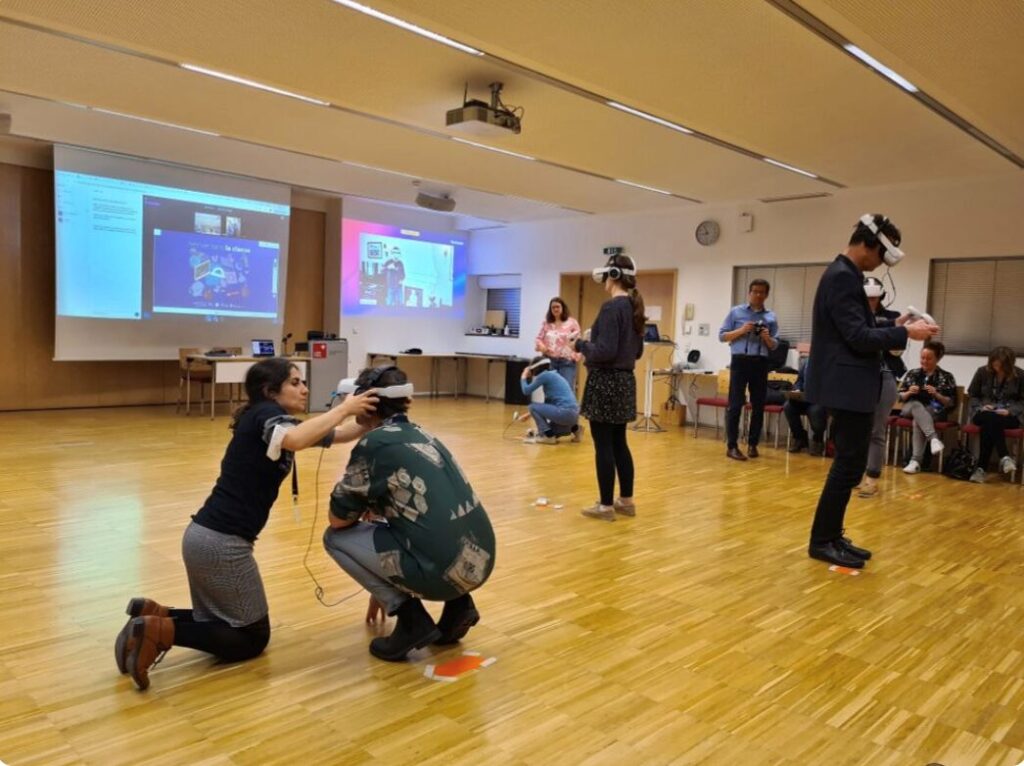
Credit: Benjamin Broadribb
UPR ICTT - Cultural identities, texts and theatricality
The Cultural Identities, Texts and Theatricality Laboratory (ICTT) is a multidisciplinary research unit (UPR 4277) with around fifty researchers, doctoral students and associate members from eight CNU sections. The laboratory is organised into two teams, Theatre and Cultural Transfers.
The laboratory's areas of research are :
- Theatre: the study of texts, the anthropology of the stage, the Avignon Festival, theatre and information technology;
- Cultural transfers: translation as artistic and cultural practice and creation, the study of the cultural object in transfer: place, time, conditions of reception;
- Linguistics: learning a second language, semantic formalisation, study of variation.
Research portraits
Updated on 2 September 2025